Introduction: In this article, Melissa Davenport Berry continues her series on the genealogy of the Wampanoag Tribe, the Indians who were in first contact with the Mayflower Pilgrims. Melissa is a genealogist who has a website, americana-archives.com, and a Facebook group, New England Family Genealogy and History.
Here are three photos about the Pilgrims and the Mashpee Wampanoag Tribe (from left to right): statue of Massasoit, Cole’s Hill, Plymouth, Massachusetts; Plymouth Tercentenary celebration, September 1921, reenactors for the scene of Massasoit receiving treaty of April 1621; Wampanoag Indian.
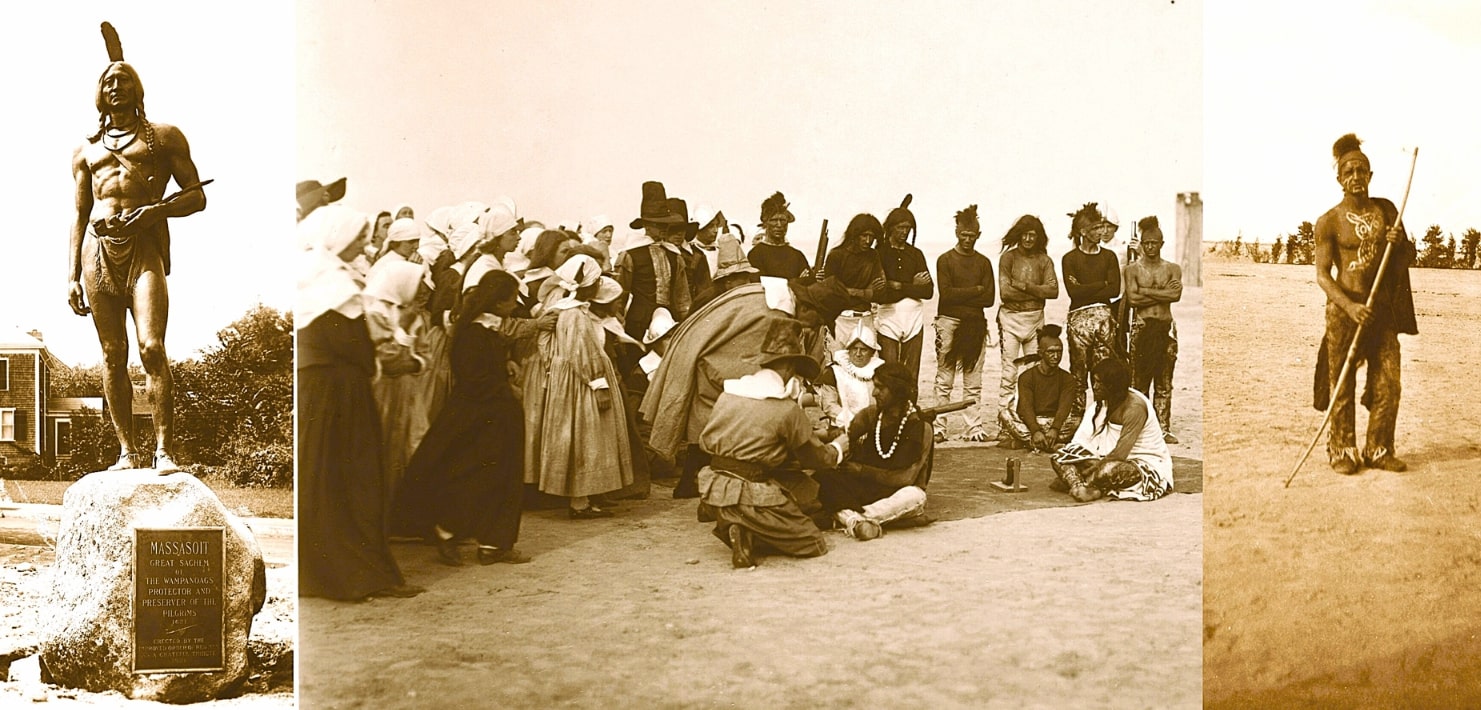
Today I resume my “Mayflower Descendants & the Mashpee Wampanoag Tribe” series, featuring descendants of Mayflower passengers John Howland, Elizabeth Tilley, and Joseph Rogers as well as the descendants of the Mashpee Wampanoag family of Reverend Joseph Babcock Amos.
To recap: My series on the Mayflower lines of Katie Crocker of Barnstable, Massachusetts, has featured a rare account book connected to the business of Zenas Crocker (1761-1807) and his descendants.
The Crocker account book contains residents of the Mashpee Wampanoag Indian Tribe. (Note: there are two federally recognized tribes of Wampanoag people in Massachusetts: the Mashpee Wampanoag Tribe of Mashpee on Cape Cod, and the Wampanoag Tribe of Gay Head on Martha’s Vineyard.)
The Cahoon Museum in Cotuit, Massachusetts, granted me permission to share the account book’s pages and do further research. You can view this book on Americana-Archives.org. For previous stories see the links listed at the end of this article.
Howland Mayflower line
Solomon Crowell “S. C.” Howland (1813-1878), son of Ellis and Fear (Crowell) Howland, is a direct descendant of Mayflower passengers John Howland and Elizabeth Tilley through their son John Howland, who married Mary Lee. Solomon served in many offices working with the Mashpee Indians.
He was a Justice of the Peace and married many of the Mashpee Tribe’s families. His father Ellis Howland built the Town Hall in Sandwich, Massachusetts.
S. C. Howland married Adelia Hatch (1819-1892), daughter of Silvanus and Tirzah (Hatch) Hatch and a direct descendant of Mayflower passenger Joseph Rogers who came with his father Thomas at age 17.
Adelia’s ancestor Thomas Tupper was also instrumental in securing peace with the Native Americans and erecting the first meeting house. Tupper, along with Richard Bourne aka “the White Sachem” or “Little Father,” helped secure the Mashpee (originally called Marshpee) Wampanoag Tribe’s reservation land.
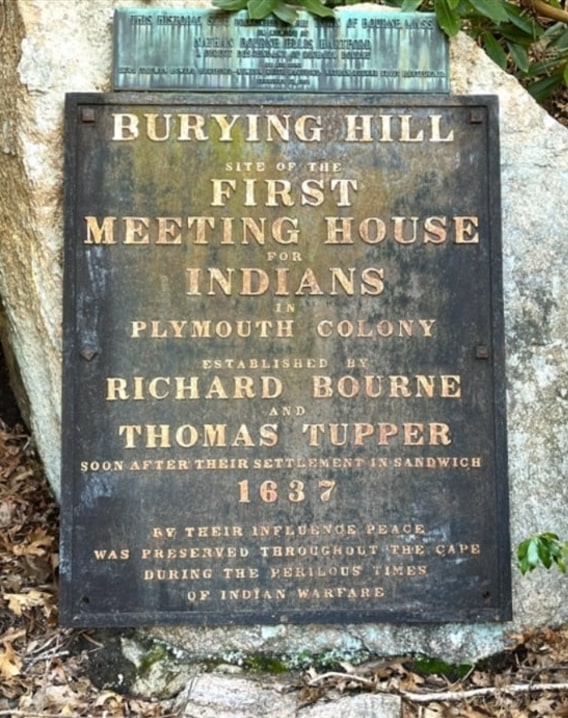
Below is the death notice for S. C. Howland published in the Boston Journal. He died on 9 May 1878 at the age of 61.

This notice reads:
S. C. Howland. Solomon C. Howland, for more than forty years Postmaster at South Sandwich, and at the time of his death Collector of Taxes for the town of Sandwich, died on the 9th inst.
Amos and Allied Lines
The Smithsonian National Museum of the American Indian (NMAI) holds a photo album of four generations of the Mashpee Wampanoag family of Reverend Joseph Babcock Amos (1805-1869), also known as “Blind Joe” or “Blind Joseph” Amos of Mashpee.
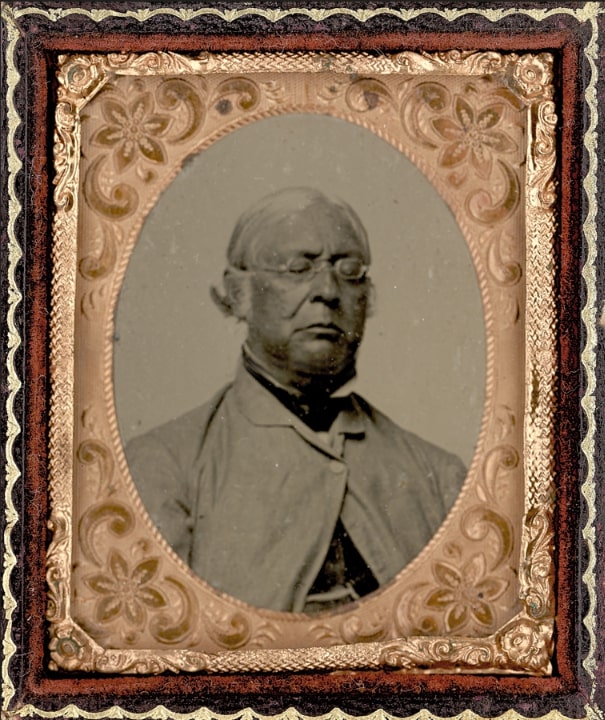
Rev. Amos was born in Mashpee to Jeremiah and Ophelia (Babcock) Amos. He became blind at an early age and memorized the Bible. He went on to become the first ordained Mashpee Wampanoag Indian minister and was the founder and pastor of the Wampanoag Baptist congregation at Gay Head on Martha’s Vineyard.
He married Abigail Wickam/Wikam (1804-1853), daughter of Thadeus and Elizabeth Betsey (Isaac) Wickam/Wikam.
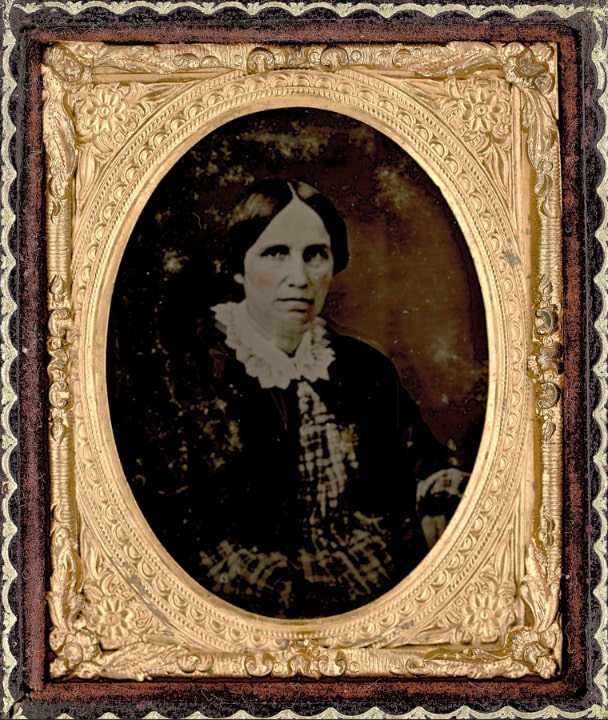
Part of the NMAI photo collection includes an ambrotype of Rebecca Cecorson Amos (1834-1922), one of the six children born to Rev. Amos and his wife Abigail.
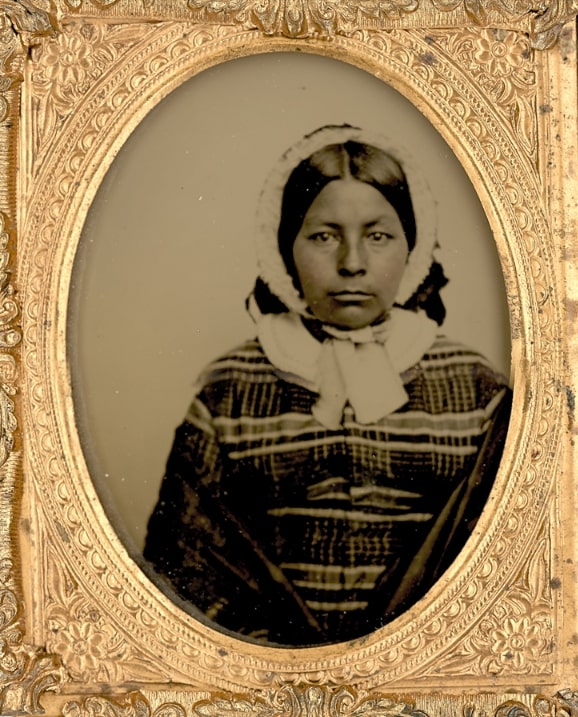
In addition, there are two cabinet cards of Rebecca and her husband, the Hon. Watson F. Hammond (1837-1916), son of John and Catherine (Auprey) Hammond and a descendant of the Montauk Indian Tribe.
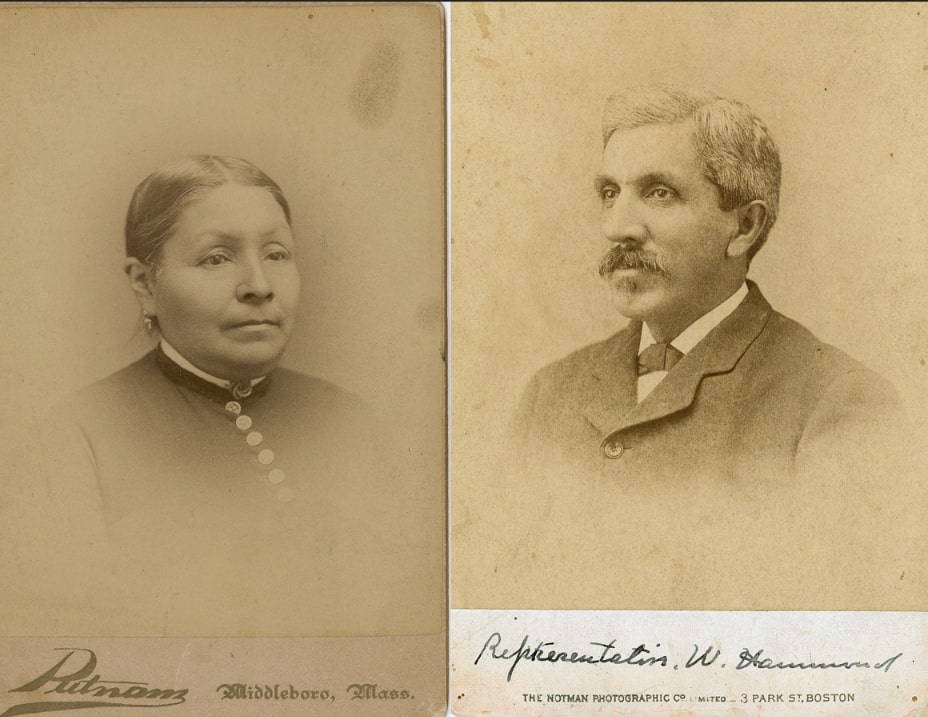
The couple were married on 20 January1860 by S. C. Howland. Below is their marriage announcement from the Barnstable Patriot.
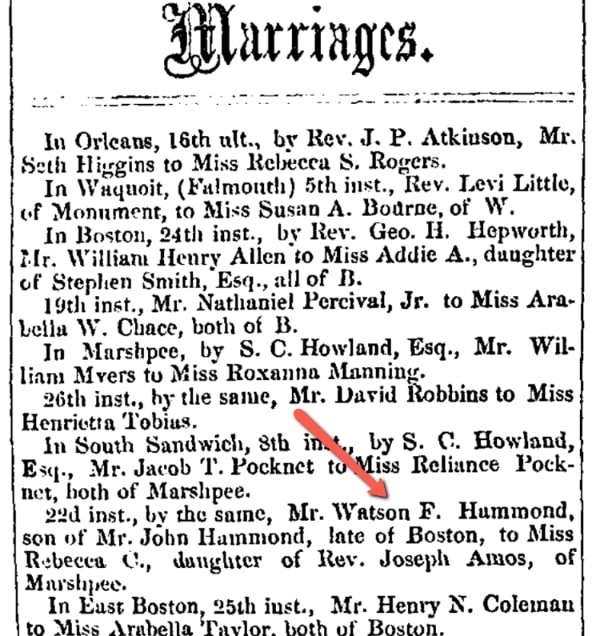
This notice reads:
(In South Sandwich) 22d inst., by the same [S. C Howland, Esq.], Mr. Watson F. Hammond, son of Mr. John Hammond, late of Boston, to Miss Rebecca C., daughter of Rev. Joseph Amos, of Mashpee.
Watson served in many public offices. In 1869 he served as Selectman of Mashpee and S. C. Howland served as Town Treasurer. (“Annual Report of Public Documents, Commonwealth of Massachusetts,” Volume 4, p.1.) Later Watson filled Howland’s position.
By 1886 Watson was selected by Republicans with an overwhelming majority as the first North American Indian elected to the state legislature.
Below is a newsclip citing his win. It also states he was 48 years old, was left fatherless at age 7, and was a self-made man.
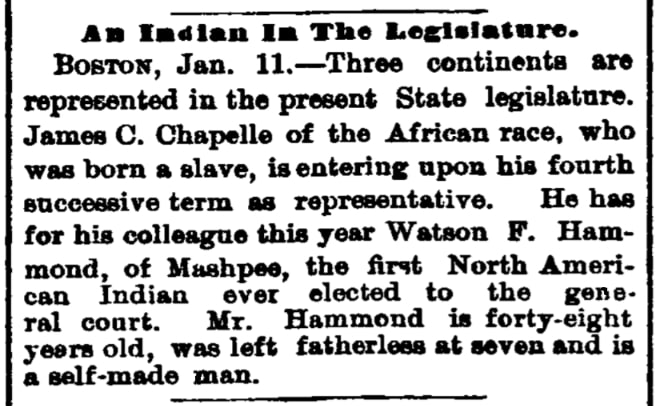
After Watson’s father died in 1844 he lived at the Hotel Attaquin, owned by Solomon Attaquin (1810-1895), son of Solomon and Desire (Mingo) Attaquin.
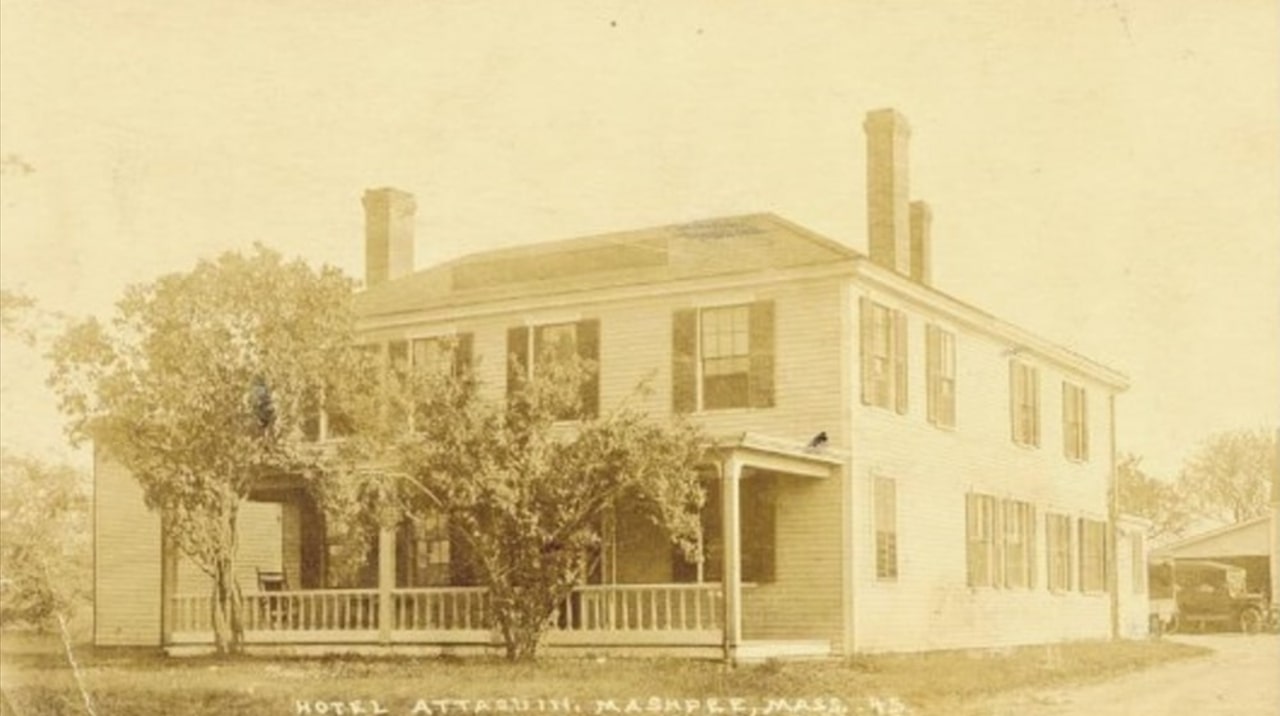
Watson’s sister Frances Catherine Hammond married Walter R. Mingo, the grandson of Solomon and Desire through their daughter Leah, who married William Mingo.
Walter R. Mongo maintained a substantial farm and several acres of cranberry bog.
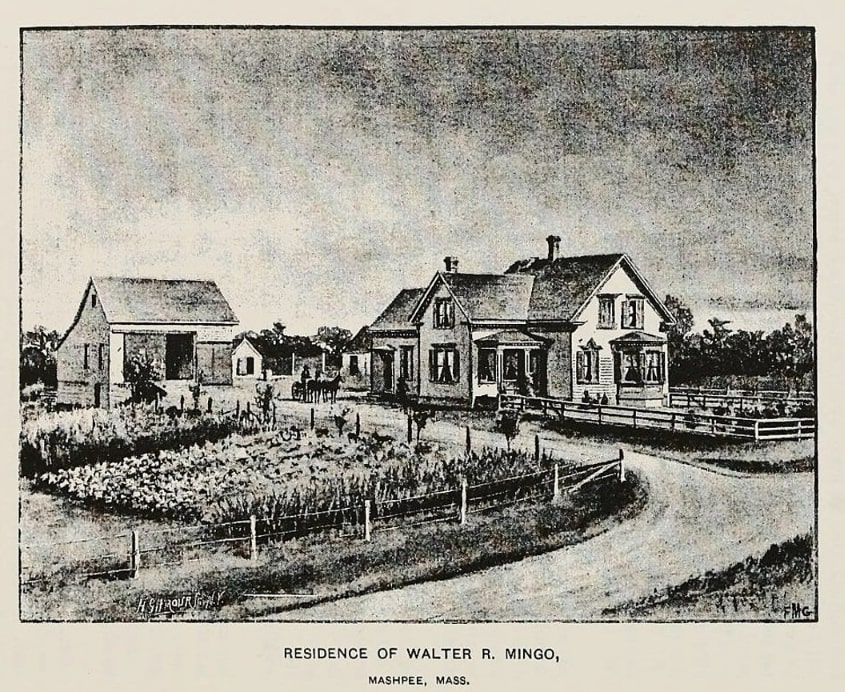
Watson is credited for inventing an improved cranberry screen and sifter. His patent is listed in the “Annual Report, Commissioner of Patents, with a date July 3, 1883.”
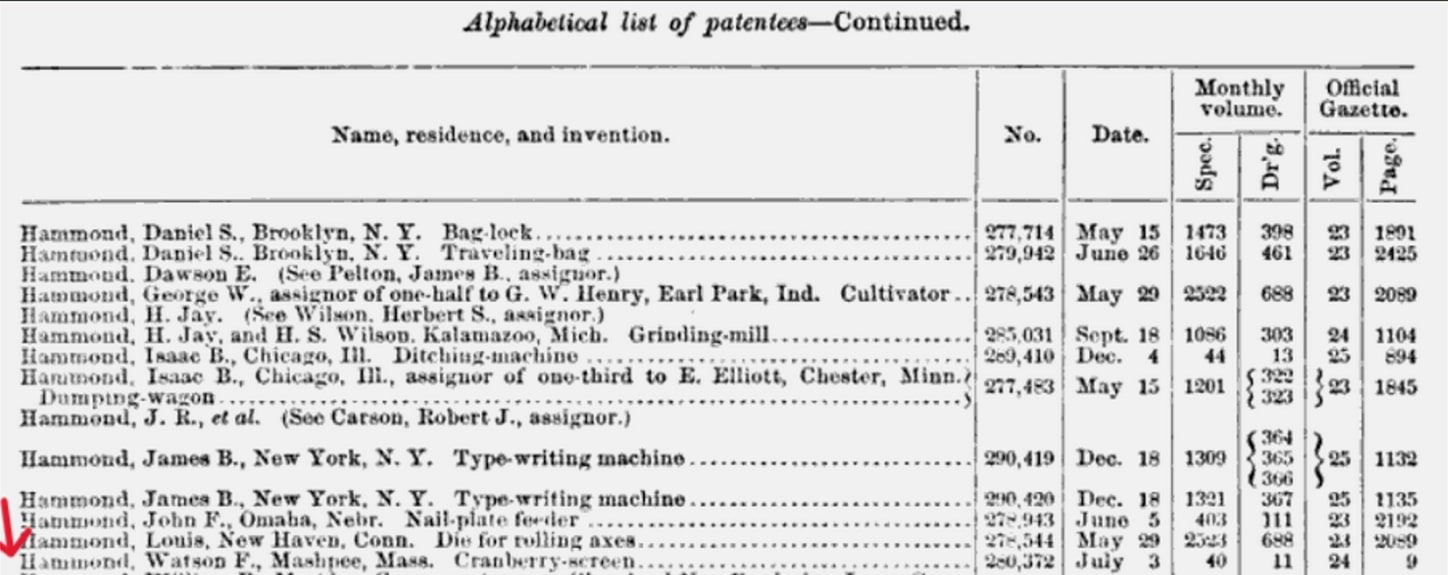
Stay tuned…
Explore over 330 years of newspapers and historical records in GenealogyBank. Discover your family story! Start a 7-Day Free Trial
Note on the header image: Ousamequin, or “Massasoit” (Wampanoag term for “Great Sachem”) and Governor John Carver smoking a ceremonial pipe at Plymouth Colony in 1621. Credit: Sutro Library; Wikimedia Commons.
Related Articles:
- Mayflower Descendants: Who’s Who, Part 35 (part 9)
- Mayflower Descendants: Who’s Who, Part 35 (part 10)
- Mayflower Descendants: Who’s Who, Part 35 (part 11)
- Mayflower Descendants: Who’s Who, Part 35 (part 12)
- Mayflower Descendants & the Mashpee Wampanoag Tribe (part 1)
- Mayflower Descendants & the Mashpee Wampanoag Tribe (part 2)
- Mayflower Descendants & the Mashpee Wampanoag Tribe (part 3)
- Mayflower Descendants & the Mashpee Wampanoag Tribe (part 4)
- Richard Bourne: Missionary to Plymouth Colony Indians
- Thomas Tupper: Missionary to Plymouth Colony Indians
- The Howland Family Passenger Profile, Mayflower Society

Excellent article!
Thank you! And I am looking forward to covering more soon and researching Squanto as you suggested!